TAoN No. 63: Invent Your Own Holiday
Plus: Read the walls, a missing word, new icebreaker(s), and more
The Art of Noticing: 131 Ways to Spark Creativity, Find Inspiration, and Discover Joy In the Everyday offers exercises, prompts, provocations, games and things you can actually do to build attention muscles, stave off distraction, pick up on what everybody else overlooked, and experience the joy of noticing. Indiebound | Amazon | Barnes & Noble | Knopf. This newsletter offers related news and ideas and noteworthy projects that have come along since I finished the book. ****Subscribe or unsubscribe at: robwalker.substack.com.****
Invent Your Own Holiday
For those of us lucky enough to live in New Orleans, one of the great pleasures of Mardi Gras is that while our city takes the day off, puts on a silly outfit, enjoys parades and friends, and gets drunk, the rest of the country goes to work as usual. “Everywhere else, it’s just Tuesday,” as the saying goes.
This is one reason I’d been feeling so glum about Mardi Gras this year: no parades, no 9 a.m. champagne with a crowd of pals and strangers, no costumed throngs whooping it up. I almost decided I’d just go to to (remote) work like everybody else.
But New Orleans has rallied. With parades cancelled, a movement has risen from the grass roots to decorate homes as if they were carnival floats — “float houses,” they’re called, markers of “Yardi Gras.” Look, it’s not the same, but it’s really brightening up the city, and (at least a little) everyone’s mood. (An example from our neighborhood above; one E noticed in the Marigny today below. More about the float houses and lots of pictures of fancier ones here and here and here; also Metafilter has collected a group of links that give the whole back story. The idea evidently started as a Twitter joke.)
All of this reminded me of something I read in The Wall Street Journal back in November, about companies trying to figure out how to mitigate the unique work stress and burnout that pandemic culture has caused:
“Here’s a suggestion … Employers should invent a holiday. Don’t just offer extra vacation days, which anxious employees aren’t taking anyway. Make it a company holiday, so employees can take a break without guilt or fear.”
The article (which is probably behind a paywall, sorry) gives several examples of firms mandating a company-wide off day, and what various employees did instead — from visiting the beach to making art with the kids. And that’s cool. But I was briefly disappointed that nobody seemed to be devising a full on new holiday, along the lines of Festivus (from Seinfeld). Then I realized maybe we don’t want our employers doing that.
But we can do it.
And the more I think about that, the more it seems to me like a great design-class assignment, or family project, or just an individual thought exercise requiring observation of existing “holiday” parameters, contemplation of how celebration might connect us to others, and individual reflection on what seems worth celebrating in the first place. So:
What are your holiday’s “traditions”? Does it involve costumes? Certain specific foods? Particular music? Mandatory rituals? Special indulgences? A color scheme? Objects, whether functional, decorative, or absurd?
Who is involved? A group limited by personal connection, or geography, or some idea? People you hand-pick for reasons of your own? Or is it more open? Or is this a holiday just for you.
What is your holiday about? What deserves a holiday? (Or maybe that doesn’t matter. Don’t overthink it, keep it light if that’s easier. If your holiday is about you and a friend dressing in purple and going to museums, fine!)
Finally: When is your holiday? Find a day that you and your fellow observers can take off. (Bonus: make the holiday last longer with run-up events that don’t require days off. Carnival is of course a whole season of formal and informal events.)
PS: Don’t bother to explain all this to your boss. For years I would try to make clear to various editors elsewhere that Mardi Gras is a really big deal in New Orleans so I might be hard to reach — but they’d just call or email me anyway. Finally I just started to say “I’ll be totally unreachable Tuesday, for personal reasons.” If the reasons involved day-drinking in a wig downtown, well, so be it.
What’s really moving to me about the float-house phenomenon is the same thing that was making me so glum about the absence of parades and so on: It’s confirmation that Mardi Gras really means something. The fact that it’s so distinctly local is a big part of that. It’s not special despite its comparatively limited reach, it’s special because of that apparent limitation. It’s special because it’s ours.
So invent a holiday — one that’s yours.
(I still don’t know what I’ll actually do this Fat Tuesday, beside bike/drive around looking at houses. But I did put in for the day off.)
Read the Walls
Longtime friend and former colleague of TAoN Ron Lieber, who writes the “Your Money” column for The New York Times, has a new book out: The Price You Pay for College: An Entirely New Roadmap for the Biggest Financial Decision Your Family Will Ever Make. It is just what it sounds like.
Ron put together a list of “the 23 best college books/guides written for the general reader” that he made available to those pre-ordered his book, and to my happy surprise it included The Art of Noticing book. The connection may not seem obvious, but Ron explained on Twitter: “I think people should read [TAoN] aloud to one another as they road trip to visit colleges.” Obviously, that would delight me.
It also made me wonder if Ron — an extremely perceptive journalist; I believe I linked earlier to his bravura piece on those big Bed, Bath & Beyond coupons — had any noticing/attention habits or tips for us. He answered immediately:
Here’s something from my book reporting, but I'm like this in real life too. Always, always, always read the walls. Read the posters, read the ads, read the random scribbled for-sale signs.
I won't soon forget the suggestion board at the Oberlin library that had turned into a giant discussion in 10 different people's handwriting about whether it was OK to post a suggestion that the school increase security due to all the stolen bags, or whether that was somehow racist or classist or townist. I won't forget that at Colorado College there were mental health awareness posters with real students on them, with real names and all their diagnoses. I won't forget that at Bowdoin this had essentially been commoditized -- they have a book of old posters from the wall in the admissions office.
I can see how “reading the walls” must have shaped the reporting for The Price You Pay for College, but I also just love the hidden narratives in those examples. And this doesn’t even touch on graffiti! It all reminds me a little of an earlier and more on-the-street-focused prompt: Observe a Poem, about constructing something new out of the words you notice. But I’m digging “read the wall” as a simple and rewarding noticing practice. I’m taking this advice.
Meanwhile: those of you with kids thinking about college, I’d definitely recommend Ron’s book. More on that here.
Dictionary of Missing Words
Dictionary of Missing Words (formerly Need A Word For … ) is an exercise in paying attention to phenomena you encounter — sensations, states between states, feelings, slippery things — that could be named, but don’t seem to be. More here and here.
This week’s submission is from Arlena, via the comments.
Need a word for that momentary feeling of satisfaction and pleasure when you don't know what music you want to listen to, so you ask your home AI device to simply 'play music' and it plays the perfect track — one you didn't realise you wanted to hear until it played it. Or conversely, a word is needed for the opposite effect — when you make the same request thinking you're open to anything and it plays something you don't want to listen to.
Wonderful. Thanks Arlena!
If you have a response (maybe there IS a word for this?), leave it in the comments. Or even better: share your own example!
Icebreaker(s) Of The Week
Noticing is about other people, too. The Icebreaker series aims to help with that. There’s a central collection spot for all the icebreakers to date, here. || There’s also an Icebreaker Slack app, here. (Back story on that here.)
This week’s icebreaker comes from reader Vedika.
What is the dumbest thing you made your parents buy for you as a kid?
Actually, Vedika sent my ten icebreakers. So many of them were fun that I am going to add two more this week. (No charge!) I really like this one:
What topic do you wish was a college major but isn't?
And then there’s:
Have you ever had an Internet friend?
I would modify that one — because I assume everyone would answer yes, right? — to ask who is the best Internet friend you’ve ever made. (Could be someone you later met IRL, or an Internet-only friend. At this point I can think of lots.)
Thanks so much Vedika!!
As usual, I’m still working through the backlog of icebreaker submissions, but as always, I want more:
Send your favorite icebreaker (whether you made it up or found it elsewhere) to consumed@robwalker.net
In Other News
@mysticnoanklibrary, @francissadac
The Art of Noticing book gets a kind shout-out on this interesting and useful episode of the Code[ish] podcast, “Meditations for the Curious Skeptic.” Lots of intriguing ideas connecting mindfulness, creativity, and work from Andrew Lenards, a veteran programmer who is also a meditation coach. More here.
For Marker, I wrote about Doc Martens, and Trump’s Diet Coke button, among other things.
Werner Herzog talks skateboarding. Charming. (Big thanks to talented friend of TAoN Rona.)
Sink reviews on TikTok. (I’m not on TikTok, but this tempts me.)
Spend time on something that will outlast this. Particularly good Austin Kleon. I am trying to take this advice.
“You discover yourself in what you choose to notice.” One of my very few positive new pandemic-era habits is reading the weekly poem in The New York Times Magazine, something I always ignored in the past. I like to read the poem first, then the little intro paragraph about why it was chosen, then the poem again.
Please follow me on Medium at rwalker.medium.com, and check out Marker, the Medium business publication I work for.
Okay that’s it! Next issue in two weeks.
As always, I value your feedback (suggestions, critiques, positive reinforcement, constructive insults, etc.), as well as your tips or stories or personal noticing rituals, and your icebreakers: consumed@robwalker.net. Or use the comments!
Thanks for reading …
rw
P.S. If you enjoyed this, click the heart symbol, share it and/or sign up here: robwalker.substack.com.
Twitter | Medium | RobWalker.net | NB: I use (some) Amazon Affiliate links
All this by Rob Walker PO Box 171, 748 Mehle St., Arabi LA 70032
Unsubscribe Here if you wish.


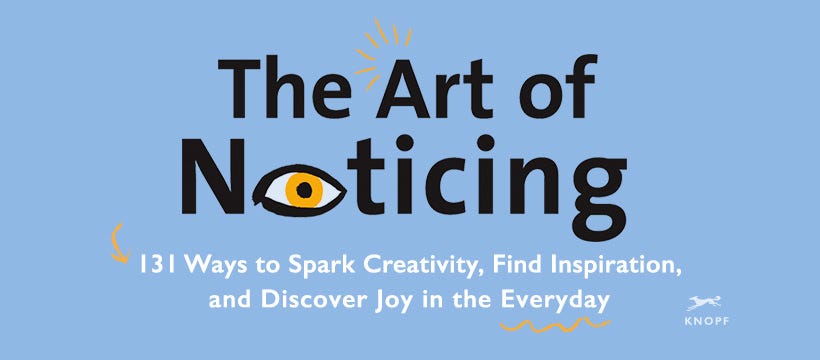

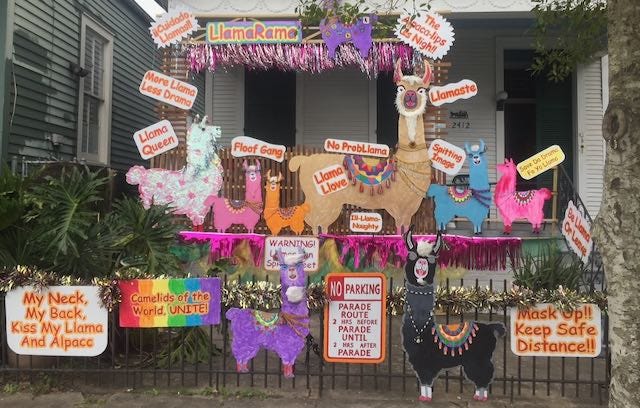
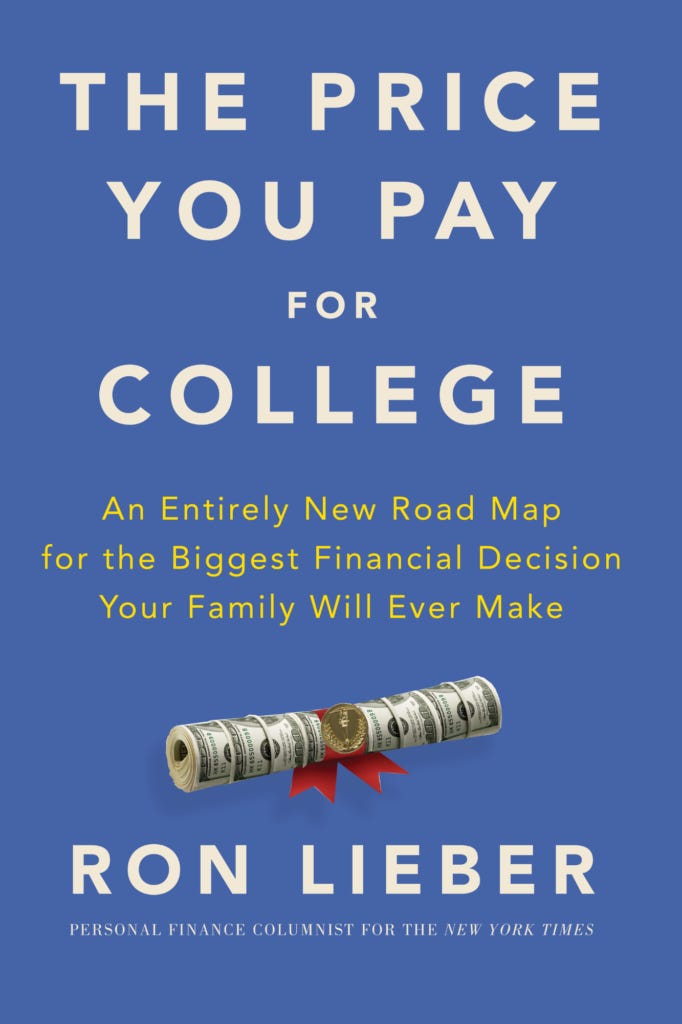
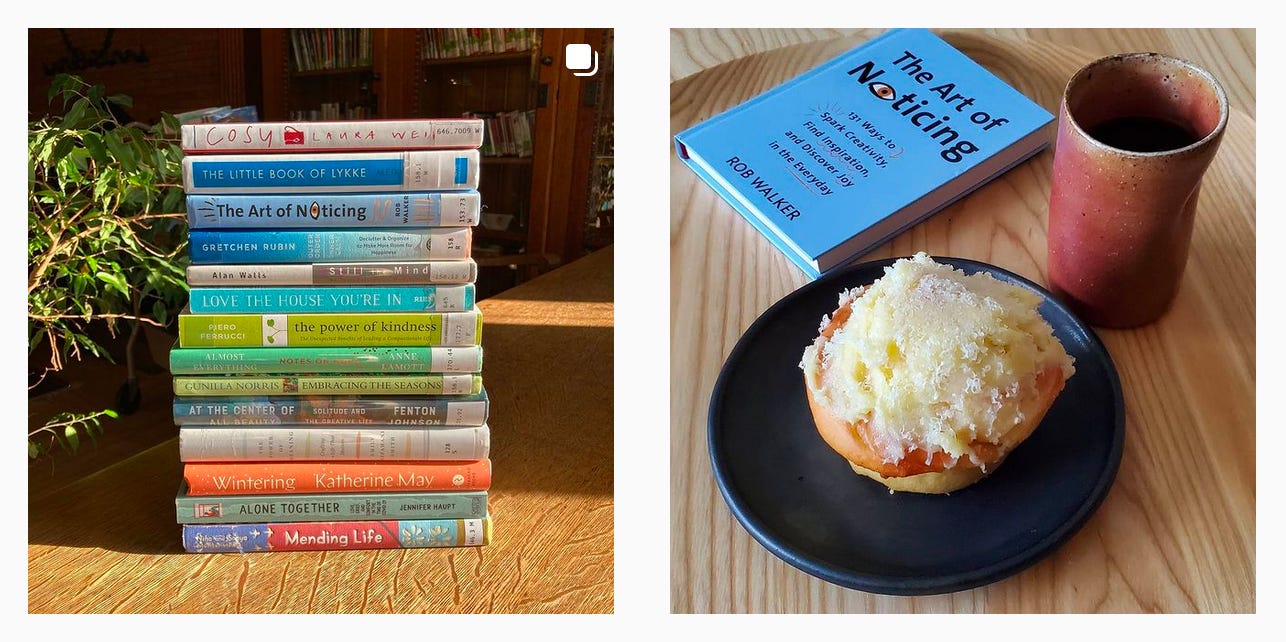
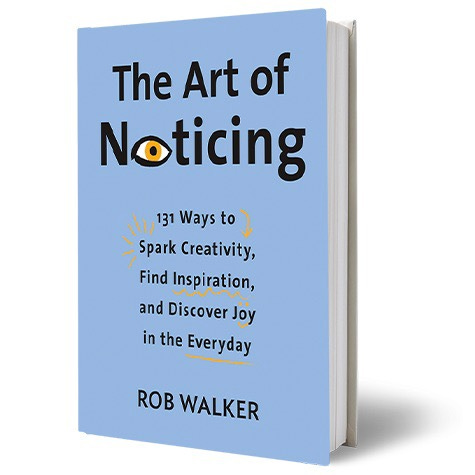
Hello. Not able to get into make comments on current Newsletter?
My suggestions rewarding song selections:
Part One: Music Muse
Part Two: Wrong Song Phenomenon
One new holiday that was invented a few years ago is Wolfenoot - celebrated on November 23rd. It is, to quote one tweet: "a day when we pamper our dogs and give small gifts to dog lovers. A holiday made up by a 7 year old, Wolfenoot has taken off. Be nice to your dog today.
https://wolfenoot.com